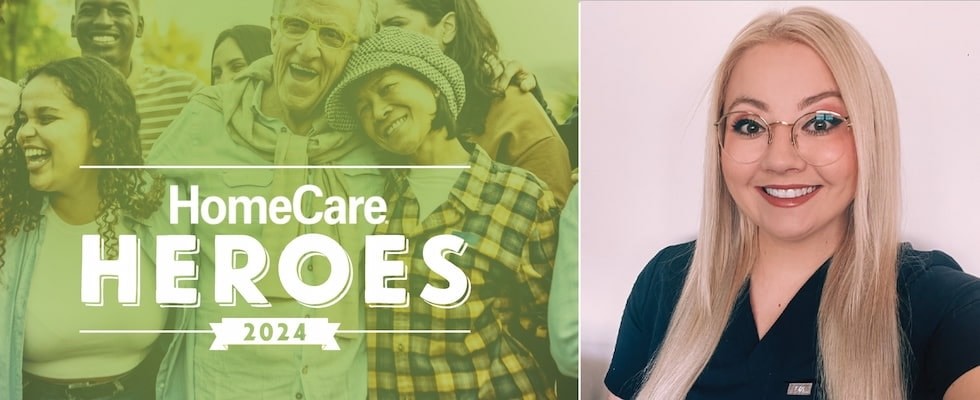
When Hurricane Ian finally dissipated on Oct. 1, 2022, it left in its wake $113 billion in damage, 161 dead and 9 million people without power. It was labeled as the costliest tropical cyclone in Florida’s history.
“That hurricane completely destroyed where we lived,” said Kasey Goben, a registered nurse who works with Angels Care Home Health and Millenium Home Health. As a resident of Fort Myers, Florida, she was without power for 13 days and without water for three weeks.
And yet, a day after the storm made landfall, Goben was in her Jeep, making her way over roads that were no longer there—through standing water and past debris to reach patients who had been cut off from the rest of the population.
“This one patient in particular, his road was just completely destroyed,” she said. "He lived right on the water. He was probably in his late 80s or early 90s, and when I opened the door, so much water rushed out of the house. He was just sitting there on his cabinet, basically waiting for somebody to come find him.”
In the days and weeks after the storm, Goben and other local home health workers didn’t just care for the immediate health of their patients. They were able to bring mold remediation companies to some houses and provide other resources well beyond health care, she said.
Goben was born into a family of nurses, so to her, it only seemed right to follow in their footsteps.
“My grandmother, my mother and my sister—they are all nurses,” she said. “I never even explored other career options.” She became a registered nurse in 2020, a rough year for many front-line workers, and began her career in acute care and travel nursing before settling into home health two and a half years ago.
“I really just wanted to branch out and try something completely different in the outpatient setting,” Goben said. “And home health is where I landed.”
At first, she said, it was different for her to have that much autonomy over her routine and responsibility for the day-to-day care of her patients.
“You’re the one there educating them and providing all these resources and tools to help them get better,” she said. “So, it was a shift, but it was a good one.”
She has also learned to trust her gut. When one patient was in the hospital, she made it a point to check in with the person’s spouse, who was medically fragile and at home alone. When talking to him one day, she realized something wasn’t right. “You could hear it,” she said.
“You could hear his slurred speech. He was not making any sense, he was confused.”
Goben called 911 and waited with him on the phone until emergency medical technicians reached him. He was taken to the hospital and diagnosed with a cerebrovascular accident. Goben helped work with the spouse, family and hospital so they were admitted to the same hospital as their spouse.
“Trust in your gut is everything. Even if it might not be anything at all, the one time that it is something and you don’t call…” Goben left the rest of the sentence unspoken. “We just want the best outcomes, no matter what.”
Goben is currently on the path to becoming a nurse practitioner so she can continue to build upon her knowledge and educate those she’s helping. Her plan is to stay in home health after she graduates in April, and she wants to become a wound care nurse practitioner.
“At the end of the day, I truly care,” she said. “I want people to get better.”
HomeCare staff Juliana Frederick, Meg Herndon and Hannah Wolfson were joined by writers Kristin Carroll and Michelle Love to tell these stories.
